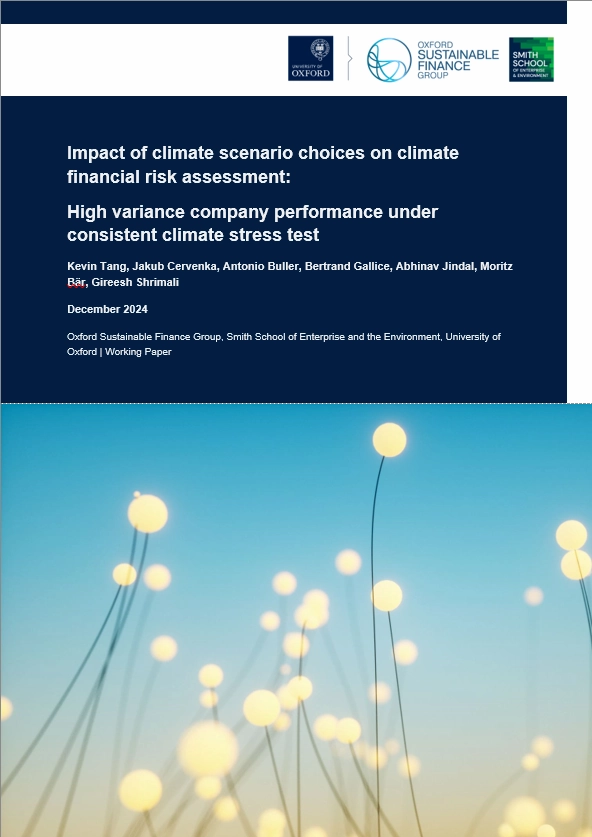Climate scenarios that forecast potential future pathways of the green transition are increasingly being applied by financial institutions to assess financial risk, including for climate stress testing. There are a variety of climate scenarios that apply different modelling techniques to forecast future economic trajectories. These models often project different trends of key economic indicators and variables, even when the scenario is based on the same temperature target or the same policy ambition.
Using a consistent climate stress test applied across eleven different climate scenarios under two different temperature targets and policy ambitions for a global set of power companies, this paper finds significant variation in the impact that each scenario has on the assessment of company valuation, and in the probability of default.
First, we demonstrate that climate scenarios have significantly different and varying impacts on power company performance depending on the choice in climate scenario, even when using scenarios with the same policy ambition or temperature target.
Second, we find variability and disagreement in positive and negative company performance based on different energy sector technology trajectories within each scenario.
Third, variability in company performance by technology is also differentiated based on climate scenario stringency, with more stringent and ambitious scenarios leading to less variability compared to less stringent and less ambitious ones.
Finally, differences and variability in company performance have implications for financial institutions based on the probability of default. Based on these findings, we show that the variation in the probability of default and the company valuation is ultimately related to differences in the assumptions of the transition pathway. This can have significant implications for how financial institutions conduct portfolio selection and climate stress testing.
This working paper was developed as part of the 1in1000 Initiative, a joint research partnership between Theia Finance Labs and the University of Oxford Sustainable Finance Group, with additional support from the UK Centre for Greening Finance and Investment.




